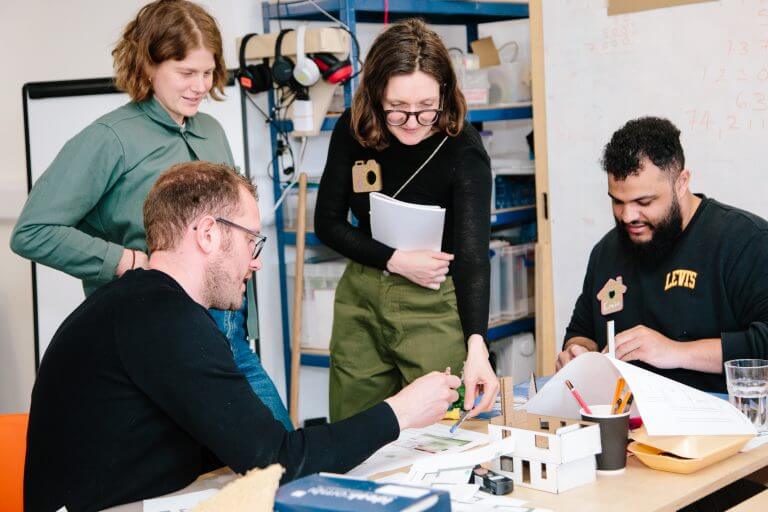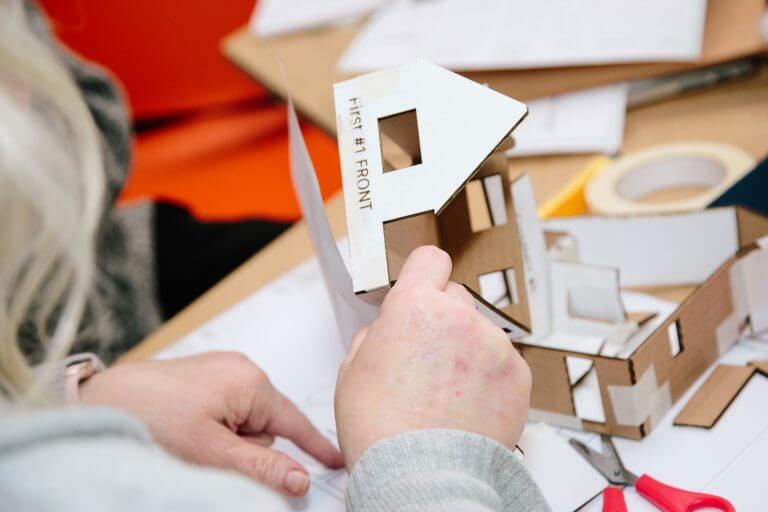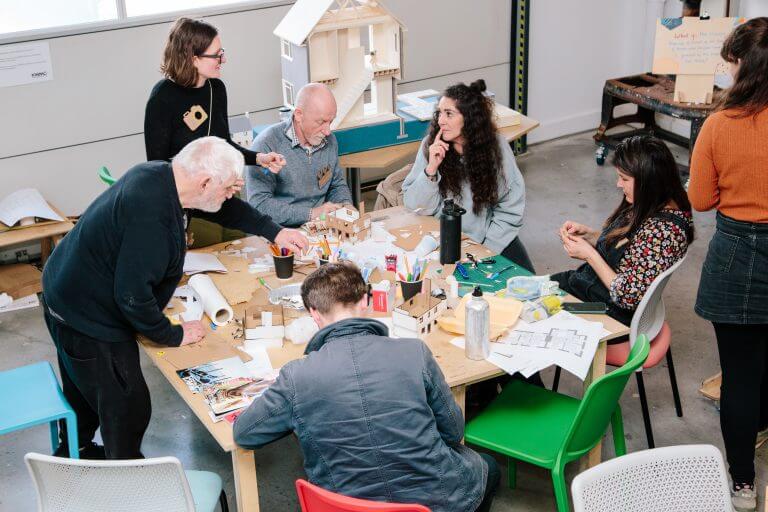

Our research focuses on interwar, 1920-1940, low-rise council-built houses which, despite being constructed with the best materials and knowledge of the time, now face challenges in meeting modern living expectations due to limited investment and evolving social priorities.
The Transforming Homes consortium is tackling these challenges by using architectural design, bio-based, recycled and re-used materials, and low-carbon technologies to transform the homes. Through innovative co-design processes and principles of the circular economy and zero waste, we are identifying opportunities to create healthy, sustainable living environments for current and future generations.
Creating and sustaining a dynamic ecosystem to co-design and remodel existing 1920-1940 social housing
Engaging the community and residents in the design process to share knowledge and shape designs.
Combining architectural design, bio-based, recycled or re-used materials, and low carbon solutions in 1920-1940 housing.
Creating a catalogue of remodelled 1920-1940 low-rise homes, developing a framework for the use of bio-based products and low carbon solutions.
Implementing transformation through ten demonstration homes in Bristol and Swansea to showcase designs and solutions.
Collaborating with professionals and stakeholders to develop, implement, and scale sustainable home transformations.
Sharing our research findings with professionals and the public and providing training to reduce the design skills gap in home transformation.
Our interdisciplinary ecosystem includes residents, industry, practitioners, local authorities, community-led organisations, and researchers. Each contributes expertise in areas ranging from architectural design, materials, and construction processes to energy, supply chains, social science, public policy, and governance.
Central to our approach is co-design, which ensures that our designs are not only theoretically feasible but can also be implemented in real-world settings. This collaborative approach is essential for advancing our project towards successful outcomes that are practical to implement and accepted by the communities that solutions are developed for at scale.


The Transforming Homes consortium seeks to influence policy, catalyse behavioural shift, and generate social, economic, and environmental benefits.
We aim to:
